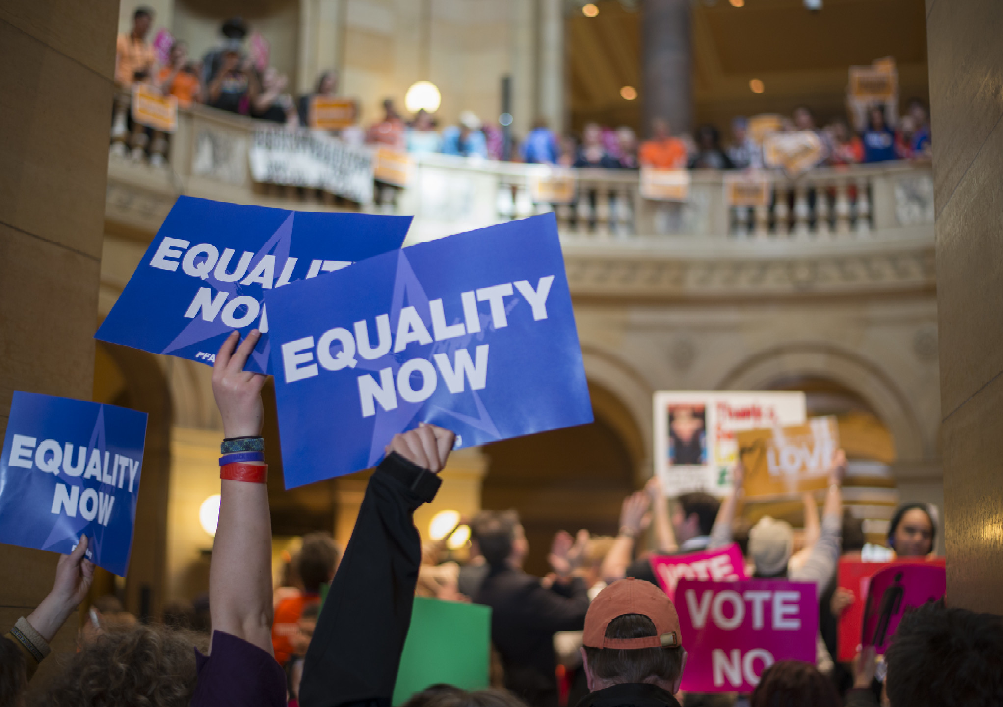Opposing same-sex marriage in court, government cites “Indian ethos”

New Delhi, February 26: Marriage in India is not just a union of two individuals but an institution between biological man and woman, the Centre told the Delhi High Court Friday while opposing same-sex marriage. It also said that judicial interference will cause “complete havoc with the delicate balance of personal laws”.
Any interpretation other than treating a husband as a biological man and a wife as a biological woman will make all statutory provisions unworkable, the Central government said.
Referring to a Supreme Court judgment, the centre said that it only decriminalised a particular behaviour and did not legitimise it. It said that marriage is essentially a socially recognized union of two individuals which is governed either by uncodified personal laws or codified statutory laws.
“The acceptance of the institution of marriage between two individuals of the same gender is neither recognized nor accepted in any uncodified personal laws or any codified statutory laws,” the Centre has said in its affidavit, NDTV reported.
“The question as to whether such a relationship be permitted to be formalised by way of a legal recognition of marriage is essentially a question to be decided by the legislature and can never be a subject matter of judicial adjudication,” said the affidavit filed in response to a plea by equal rights activist seeking recognition of same-sex marriages under the Hindu Marriage Act (HMA) and the Special Marriage Act (SMA).
The Delhi government, in its response to a similar petition filed earlier, has said that there is no provision in the SMA under which two women can be married, and it would be willing to abide by the court’s direction.
The Delhi government’s stand came in response to a plea by two women seeking to get married under the SMA.
The plea by Mitra and three other equal rights activist — Gopi Shankar M, Giti Thadani and G Oorvasi — has contended that marriages between same-sex couples are not possible despite the Supreme Court decriminalising consensual homosexual act.
In response, the Centre has said that the top court by its judgement in the Navtej Singh Johar case only decriminalised a particular human behaviour which was a penal offence, it “neither intended to nor did in fact legitimise the human conduct in question”.
“In India marriage is not just a matter of union of two individuals but a solemn institution between a biological man and a biological woman… Despite the decriminalisation of section 377 of the Indian Penal Code, the petitioners (Mitra and others) cannot claim a fundamental right for same-sex marriage being recognised under the laws of the country,” the central government said.
It said that marriage laws in the country are governed by the personal laws/codified laws relatable to customs of various religious communities which recognise only the union of a man and a woman to be capable of religious sanction, and thereby claim legal and statutory sanction.
“It is submitted that any interference with the same would cause a complete havoc with the delicate balance of personal laws in the country,” the Centre said, adding that “it is for the legislature to judge and enforce such societal morality and public acceptance based upon Indian ethos”.
The Centre has also opposed the claims of the petitioners that the concept of marriage was within the private domains of individuals, saying that marriage also had a public aspect to it as several statutory rights and obligations are connected with it.
It has said that when the legislature limited the legal recognition of marriage and the benefits associated with it to heterosexual couples, “it is not permissible for the court to override the same.”
Sign up for our weekly newsletter to stay up to date on our product, events featured blog, special offer and all of the exciting things that take place here at Legitquest.




Add a Comment